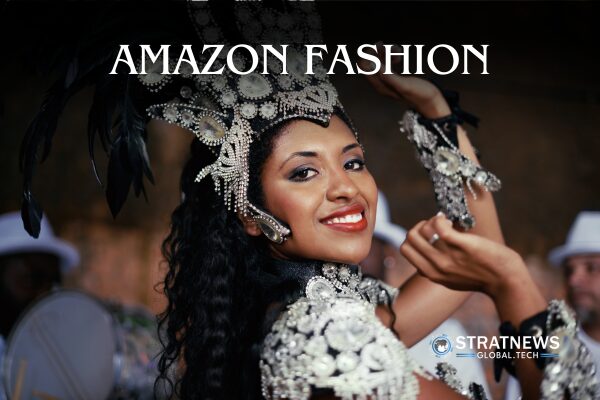Indigenous Fashion and Finance: Women in Brazil Lead Change with Amazon Fund
In a workshop near Brazil’s Amazon rainforest, a group of women cuts, sews and paints fabrics decorated with traditional Indigenous patterns. They work with industrial machines purchased through the first Amazon community fund entirely managed by Indigenous people.
Founded in 2020, the Atelie Derequine Indigenous fashion collective began by making face masks during the COVID-19 pandemic. Today, it provides jobs and showcases Indigenous fashion and rights on runways in Manaus, a major industrial city in Brazil.
Empowered by Indigenous-Led Funding
The collective’s progress was made possible by a 50,000-reais (£6,700) grant in 2023 from the Podaali fund. This is the first fund in the Amazon rainforest fully run by Indigenous people. Its name, “Podaali”, comes from the Baniwa language and means to give without expecting anything in return.
According to Vanda Witoto, a key organiser, conventional banks and institutions often ignore Indigenous interests. “They just want us to plant trees,” she said. “They don’t care about our real lives.”
Through local networks, Atelie Derequine also sources seeds from the forest to use as buttons and fasteners. Their clothing attracts attention far beyond the Indigenous community.
Podaali, established in 2019 by the Coordination of Indigenous Organizations of the Brazilian Amazon (Coiab), represents a new model of funding. It joins a growing movement of finance institutions run by Indigenous and local communities.
Direct Support for Local Priorities
Globally, Indigenous communities still receive only a small share of climate funding. A 2021 report revealed just 1% of such funds had gone to these groups over the previous decade. While wealthy countries pledged more support at the COP26 climate talks, challenges remain.
From 2021 to 2024, Indigenous communities received $2.22 billion—an increase of 38% over the previous four years, but still limited compared to global investment levels.
Juan Carlos Jintiach, of the Global Alliance of Territorial Communities, says too much funding is lost in bureaucracy. Reports show only a small portion of money promised by donors in 2023 was directly controlled by the communities.
Indigenous-led funds like Podaali aim to fix that. Instead of imposing top-down priorities, they support existing community work with simple application processes.
Women at the Forefront of Change
Podaali is part of a network of nine community funds in Brazil’s Amazon. These include initiatives led by quilombola descendants and other forest-dependent groups. Most of these funds are managed by women.
In 2023 and 2024, Podaali funded 77 community projects, offering grants between 20,000 and 50,000 reais. The funds helped buy drones for forest monitoring and support protests against anti-environmental legislation in Brasilia.
The organisation raised 9 million reais (£1.4 million) last year, with backing from international partners like the Wellspring Philanthropic Fund and the Christensen Fund.
Now, Brazil’s movement is working to expand this model across the country. With Podaali’s support, a new fund, Jaguata, was launched at Climate Week in New York. This initiative aims to support other biomes like the Cerrado, which is often overlooked despite being Brazil’s most deforested area in 2024.
As Dinamam Tuxa from Brazil’s Indigenous group Apib said, “Our challenge is to make it visible that all biomes are connected.”
with inputs from Reuters


